SWEET SIERRA LEONE
MENU⇛
Former Rulers of Sierra Leone
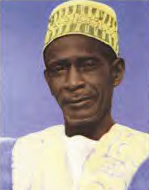
Sir Milton Augustus Strieby Margai
Sir Milton Augustus Strieby Margai,the first prime minister of Sierra Leone. He was the main architect of the post-colonial constitution of Sierra Leone and guided his nation to independence in 1961. Margai was born on 7 December 1895 in the village of Gbangbatoke, Moyamba District in the Southern Province of Sierra Leone to Mende parents. Sir Milton is the oldest of eighteen children. At the time of his birth, Sierra Leone was a British Protectorate.His father, M.E.S. Margai, hailed from Bonthe District and was an affluent businessman. Margai received his primary education at the Evangelical United Brethren School in Bonthe, Bonthe District and his secondary education at St Edward's Secondary School in Freetown. He earned his bachelor's degree in history and was the first Protectorate man to graduate from Fourah Bay College in 1921. Margai went to medical school in England and in 1926, graduated as a medical doctor from the Durham University College of Medicine (which went on to become Newcastle University Medical School). Margai also attended the Liverpool School of Tropical Medicine.He was the first Protectorate man to become a medical doctor. In 1949 he founded the nationalist Sierra Leone People's Party (SLPP) with Siaka Stevens, which won the 1951 election to the Legislative Council. Margai led the Sierra Leone delegation at the constitutional conferences that were held with British Colonial Secretary Iain Macleod in London in 1960.On 27 April 1961, Milton Margai led Sierra Leone to independence from the United Kingdom.The nation held its first general elections on 27 May 1962 and Margai was elected Sierra Leone's first Prime Minister by a landslide.His party, the Sierra Leone People's Party (SLPP) won majority of seat in parliament. In 1951 Margai oversaw the drafting of a new constitution which triggered the process of decolonisation. In 1953 Sierra Leone was granted local ministerial powers and Margai was made Chief Minister. The new constitution ensured Sierra Leone a parliamentary system within the Commonwealth of Nations and was formally adopted in 1958. Today, Sierra Leoneans regard Sir Milton Margai as a man of honesty and high principle, and look back to his time in office as a period of prosperity and social harmony. Sir Milton is the only post-Independence leader of Sierra Leone still universally admired and respected by the people of that country. He was a member of the Evangelical United Brethren Church. In 1961 Margai appealed for funding to build a school for the blind in Freetown.In 1962, he set the foundation stone for the building at Wilkinson Road.The school motto is: "We cannot see but we will conquer".In 2006, the school was the subject of a three-part documentary on BBC News. The Milton Margai School for the Blind Choir has toured the UK twice in 2003 and 2006. In 1963 the Milton Margai College of Education and Technology was established. The first incarnation of the school was the Milton Margai Teacher's College[9] but as the school grew and the curriculum expanded the name was changed to the Milton Margai College of Education.In 2000, the school merged with the Freetown Technical Institute.

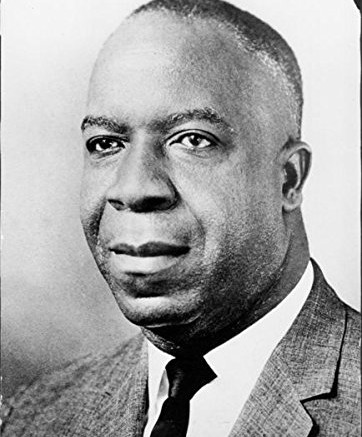
Albert Margai
Albert Margai was born in Gbangbatoke, Banta Chiefdom, in what is now the Moyamba District, Freetown.His stepfather, M. E. S. Margai, who gave him the family name Margai, was a wealthy trader from Bonthe. Margai received a Roman Catholic education at St. Edward's Primary School and went on to be one of the first group of students to attend St. Edward's Secondary School.Sir Albert Michael Margai was the second prime minister of Sierra Leone and the half-brother of Sir Milton Margai, the country's first Prime Minister. He is also the father of Sierra Leonean politician Charles Margai. Margai became a registered nurse and this was his occupation from 1931 to 1944. He later travelled to England and read law at the Inner Temple Inns of Court, where he qualified in 1948. Prior to his political career, he owned a private law practice in Freetown. Margai was elected first Protectorate Member to the Legislative Council in 1951. In 1952 he became a Cabinet Minister and Sierra Leone's first Minister of Education. In 1957 he was elected Member of Parliament for the Moyamba Constituency). He served as finance minister in Milton's government after 1962, where he also held positions alternatively in Education, Agriculture, and Natural Resources. After the death of his brother, Sir Albert served from 1964 until 1967.Albert Margai was a founding member of the Sierra Leone National Party, which was formed in 1949 to advocate and aid in the transition to independence for the country. However, in the years leading up to independence, Margai was allied more closely with Siaka Stevens than his brother. He took leadership of the Sierra Leone People's Party (SLPP) in 1957, but stepped down to form the People's National Party with Stevens. A major point of contention between the two groups involved the degree of involvement of traditional chiefs and traditional rules in the modern state. In fact, Margai openly asked traditional rulers to stay out of politics. He was one of a number of leaders (Kwame Nkrumah in Ghana and Milton Obote in Uganda are other examples) who attempted to remove the system of democratic governance enshrined in multi-party democracy as he believed that this would encourage politicians to accentuate the ethnic differences within the state and therefore threaten the viability of Sierra Leone as a country. margai was made Prime Minister on 29 April 1964. He was highly criticized during his tenure. He had a penchant for extravagant pageantry and was accused of corruption and of a policy of affirmative action in favor of the Mende tribe. The tantrum-prone Prime Minister was nicknamed "Akpata", a Mende word meaning "our wild, fat man".[ Margai was also nicknamed "Big Albert" and "African Albert". Margai endeavoured to change Sierra Leone from a democracy to a one-party state.On 18 December 1980, Margai died in his sleep. He is survived by his son, politician Charles Margai.

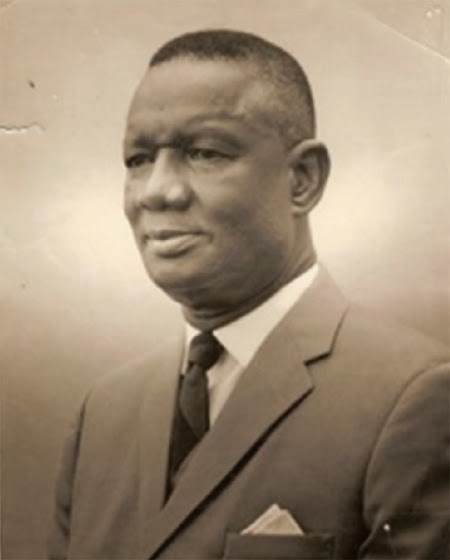
Siaka Steven
Siaka Stevens (24 August 1905 – 29 May 1988) was the leader of Sierra Leone from 1967 to 1985, serving as prime minister from 1967 to 1971 and as president from 1971 to 1985. Stevens' leadership was often characterized by patrimonial rule, consolidating power by means of corruption and exploitation.[1] Stevens and his All People's Congress (APC) party won the closely contested 1967 Sierra Leone general elections over the incumbent Prime Minister Sir Albert Margai of the Sierra Leone People's Party (SLPP). In April 1971, Stevens made Sierra Leone a republic and became president a day after the constitution had been ratified by the Parliament of Sierra Leone. Stevens served as Chairman of the Organisation of African Unity (OAU) from 1 July 1980 to 24 June 1981, and engineered the creation of the Mano River Union, a three-country economic federation of Sierra Leone, Liberia and Guinea. Stevens retired from office at the end of his term on 28 November 1985. After pressuring all other potential successors to step aside, he chose Major-General Joseph Saidu Momoh, the commander of the Sierra Leone Armed Forces, as his successor.Siaka Probyn Stevens was born on 24 August 1905 in Moyamba, Moyamba District in the Southern Province of Sierra Leone to a Limba father and a Mende mother. Although born in Moyamba, Stevens was largely raised in Freetown. Stevens completed his primary education in Freetown and completed secondary school at Albert Academy in Freetown, before joining the Sierra Leone Police Force. From 1923 to 1930, Stevens rose to the rank of First Class Sergeant and Musketry Instructor. From 1931 to 1946, he worked on the construction of the Sierra Leone Development Company (DELCO) railway, linking the Port of Pepel with the iron ore mines at Marampa. In 1943, he helped co-found the United Mine Workers Union and was appointed to the Protectorate Assembly in 1946 to represent worker interests. In 1947, Stevens studied labour relations at Ruskin College.In 1973, the first elections under the new constitution were held. The polls were marred by violence and were boycotted by the SLPP, which gave the APC all 85 seats in the House of Representatives. In March 1976 Stevens was re-elected President unopposed by the House. Stevens's vice-president from 1971 until leaving office in 1985 was Sorie Ibrahim Koroma.

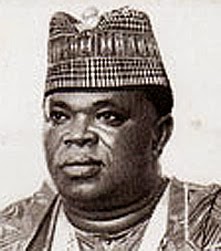
Joseph Siadu Momoh
Major General (Ret.) Joseph Saidu Momoh (January 26, 1937 – August 3, 2003) was the President of Sierra Leone from November, 1985 to April 29, 1992. Joseph Saidu Momoh was born on January 26, 1937 in Binkolo, Bombali District in the Northern Province of Sierra Leone to Limba Parents. He married Fatmata N. Momoh (a Fulani woman from Kono) a number of years after his wife, first lady Hannah Momoh died in Guinea. Momoh served as President of Sierra Leone from November 28, 1985 to April 29, 1992. A professional soldier drawn into politics, Momoh rose from the enlisted ranks, to the highest position in the Sierra Leone Military Forces (Major-General), during his presidency. In 1985 Momoh succeeded President Siaka Stevens by becoming the only candidate in a one-party election in the form of a referendum under the banner of the All People's Congress party (APC). Momoh declared a state of economic emergency early in his rule, granting himself greater control over Sierra Leone's economy, but he was not regarded as a dictator. Instead, his people viewed him as far too weak and inattentive to the affairs of state, allowing his notoriously corrupt advisors to manipulate matters behind the scenes. Sierra Leone's economy gradually disintegrated under Momoh's rule, and the country's currency decreased in value. Sierra Leone reached the point under President Momoh where it could not afford to import gasoline and fuel oil, and the country went without electricity for months at a time.Sierra In September, 1991, after the start of the . Leone Civil War, Momoh ushered in a new constitution which dismantled the one-party state established in 1978 and instituting multiparty democracy. He also played a great part in dissolving tribalism. However, Momoh's efforts at reform came too late to rescue Sierra Leone from chaos. He was overthrown in a military coup staged by Valentine Strasser, a 25-year-old army captain, in April, 1992. Strasser's cabinet members were young lieutenants and captains in their 20s. Momoh spent the last years of his life as a guest of the military government in neighboring Guinea, where he died in exile in 2003.

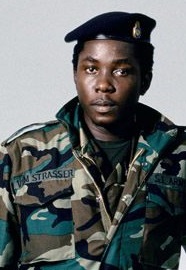
Valentine Esegragbo Melvine Strasser
Valentine Esegragbo Melvine Strasser (born on 26 April 1967 in Freetown, Sierra Leone) served as head of state of Sierra Leone from 1992 to 1996. He had been a junior military officer but in 1992, he became the world's youngest Head of State when he seized power three days after his 25th birthday. He was the leading member in a group of six young Sierra Leonean soldiers who overthrew president Joseph Saidu Momoh in the 29 April 1992 military coup. They established a military junta called the National Provisional Ruling Council (NPRC). On January 1996, after nearly four years in power, Strasser was ousted in a second military coup, but this time it was his own NPRC soldiers who were not satisfied with his handling of the peace process. The coup was led by his deputy, Brigadier General Julius Maada Bio. Stresser is the first, and one of two Sierra Leonean Head of State (the other is Julius Maada Bio) born after Sierra Leone had become an Independent nation. He is also the second Sierra Leonean Head of State from the Krio ethnic group. Strasser was born and raised in the neighbourhood of Allen Town in the east end of Sierra Leone's capital Freetown to Creole parents. Strasser enlisted in the Republic of Sierra Leone Military Forces (RSLMF) at age eighteen, immediately after graduating from secondary school.Valentine Esegragbo Melvin Strasser was born on 26 April 1967 in Freetown, the capital of Sierra Leone,. to parents from the Creole ethnic group. Strasser grew up in the neighbourhood of Allen Town, in the extreme East End of Freetown. Strasser completed his secondary education at the Sierra Leone Grammar School in Freetown and graduated in 1985 at age eighteen. While in secondary school, Strasser was a gifted student in math and chemistryOn graduation from secondary school in 1985, he enlisted in the Republic of Sierra Leone Military Forces (RSLMF) at the age of eighteen and was deployed for military training as a cadet officer at the Benguema Military Training Academy in Benguema, a town located just outside Freetown. After his training, he was commissioned into the Sierra Leone army at the young age of nineteen. He was posted to a barracks in Daru, Kailahun District in Eastern Sierra Leone. The Revolutionary United Front (RUF) led by Foday Sankoh began their first attack on 25 March 1991 in Buedu villages in Kailahun District. Strasser and other soldiers who were already in a military barracks in Kailahun, were sent to command and rout the rebellion against the RUF.During Strasser's time at the war front in Kailahun District against the RUF, the Government of Sierra Leone led by president Joseph Saidu Momoh hardly supplied enough boots to the soldiers and the necessary military equipment to help fortify Strasser and his fellow soldiers in the war against the RUF. The soldiers never received their salaries on time and their welfare was hardly at the top of the government's list of priorities. After many appeals, warnings or threats, the young soldiers decided to march down in their combat from Kailahun to the State House in Freetown on 29 April 1992, to protest about their setbacks in pursuing the war, demanding their outstanding salaries. The group of soldiers was led by Strasser himself and his best friend Solomon Musa. The emergence of the soldiers into the capital city forced president Momoh to flee the country and he went into exile in Conakry, Guinea. That motivated Strasser and his men to seize power, forming the NPRC, with Strasser as its leader and the Head of State of the country. Strasser became the youngest Head of State in the world at just twenty five years old.

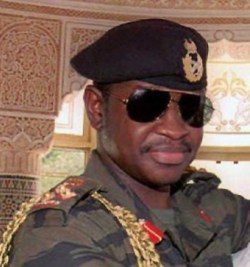
Julius Maada Wonie Bio
Brigadier (Ret.) Julius Maada Wonie Bio (born May 12, 1964) is a Sierra Leonean politician who was the military Head of State of Sierra Leone from January 16, 1996 to March 29, 1996 under the National Provisional Ruling Council (NPRC) military junta government. Bio is currently an active member of the Sierra Leone People's Party (SLPP) and was its presidential candidate in the 2012 presidential election, having won the nomination at the July 31, 2011 SLPP national convention held at the Miatta Conference Hall in Freetown. Bio led a military coup in Sierra Leone on January 16, 1996, ousting his close friend and the leader of the NPRC junta government, Captain Valentine Strasser, following a division within senior members of the NPRC junta. In his first public broadcast to the nation following the 1996 coup, Brigadier General Bio stated that his support for returning Sierra Leone to a democratically elected civilian government and his commitment to ending the Sierra Leone civil war were his motivations for the coup. Bio fulfilled his promise to return Sierra Leone to democracy and handed power to Ahmad Tejan Kabbah of the SLPP following the latter's victory in the 1996 presidential election. After retiring from the military in 1996, Bio moved to the United States to continue his education. Bio is a graduate of American University in Washington, D.C. with a Masters Degree in International Affairs. Bio had served as the president of International Systems Science Corporation,a consulting and investment management firm based in the United States. He is currently married and has four children.Julius Maada Bio was born on May 12, 1964 in Tihun, a village in Sogbini Chiefdom, Bonthe District, just a few distance from the main commercial town of Mattru Jong, in the Southern Province of Sierra Leone. Bio is one of 35 children born to Mende Paramount Chief Charlie Bio II of Sogbini Chiefdom. Bio's father had nine wives. Bio is named after his paternal grandfather, who was also a paramount chief of Sogbini Chiefdom. Bio began his primary education at the Roman Catholic Primary School in Tihun. After finishing his early years in primary school, Bio was sent to the town of Pujehun to live with his older sister Agnes, who was a primary school teacher in Pujehun. Bio completed his primary education at the Holy Family Primary School in Pujehun. At the completion of his primary education, Bio's older sister, Agnes, enrolled him at the Bo Government Secondary School in Bo (commonly known as Bo School), a famous boarding school and one of Sierra Leone's most widely recognized secondary schools. Bio spent seven years at Bo School, rising to become school Prefect. Bio graduated from Bo School in 1984 with A-level at age 20. On April 29, 1992, Bio was one of a group of six young Sierra Leonan soldiers that included Captain Valentine Strasser, Lieutenant Sahr Sandy, Surgeon Solomon Musa, Captain Tom Nyuma and Captain Komba Mondeh that toppled president Joseph Saidu Momoh's All People's Congress (APC) government in a bloodless military coup. The young soldiers formed the Chairman of the National Provisional Ruling Council (NPRC) with Strasser as their leader and Head of State of Sierra Leone. Bio's first appointment following the formation of the NPRC was as the Secretary of State South, stationed in the country's second capital Bo. He was later moved to Freetown to serve as Secretary of State in charge of Information and Broadcasting. At this point, he was promoted to Captain alongside other junior lieutenants. As a leading member of the coup that kicked out the APC government, Bio served as SCS member throughout the NPRC's stay in power and when Strasser's deputy, captain S.A.J. Musa, was sacked and exiled to the UK, Bio was appointed to the position.

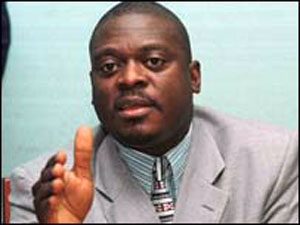
Johnny Paul Koroma
Koroma was born to Limba parents in Tombodu, in the Kono District of eastern Sierra Leone, and grew up in Freetown, the capital. He is from the same ethnic group as former presidents Siaka Stevens and Joseph Saidu Momoh. He joined the Sierra Leonean army in 1985 and was sent to the Royal Military Academy Sandhurst in England in 1988 to train as an officer. He returned to Sierra Leone the next year and was promoted to platoon commander, and soon thereafter to company commander. He continued to move up the ladder, and in 1994, he went to the Teshi Military College in Ghana for training in army command.Koroma received military training in Nigeria and Britain. He commanded government forces who were fighting against the Revolutionary United Front (RUF), a rebel army led by the warlord Foday Sankoh. In August 1996, he was arrested for alleged involvement in a coup plot against the southern civilian officials who were in control of the country. It was also alleged that there were plans to kill President Ahmad Tejan Kabbah. Koroma was freed from prison during a successful military coup on 25 May 1997, when 17 junior soldiers serving the Sierra Leone Army (SLA) broke into the central prison and made a do-or-die offer that brought him to power.[clarification needed] He advocated making a peaceful settlement with Sankoh and allowing him to join the government, though this never happened. After the coup in 1997, Koroma was named head of state and chairman of the Armed Forces Revolutionary Council (AFRC). He invited the leadership of the Revolutionary United Front to join the AFRC, which they promptly did. To maintain order, he suspended the constitution, banned demonstrations and abolished all political parties. The AFRC coup was accompanied by an explosion of violence against civilians throughout the nation. The key strategic change was that the RUF had immediate access throughout the country, something they had failed to achieve through six years of military action. Koroma cited corruption, erosion of state sovereignty, over-dependence on foreign nations, and leaders' failure to address tensions between the SLA and government-backed tribal militia movements (in particular the Kamajors) as the pretext for the coup. Koroma's story was consistent with that of the AFRC, which cited the failure of the Abidjan Peace Accord struck between the government of Sierra Leone and the RUF on 30 November 1996.By 2 June 1997, the RUF/AFRC found itself at odds with Nigerian forces, which were deployed unilaterally under the Economic Community of West African States' Ceasefire Monitoring Group (ECOMOG) and its mandate of August 1997. The Nigerians were stationed in and around Freetown's Western Area, trading mortar fire along the main highway into Freetown and around Freetown International Airport. Koroma immediately sought to ease the situation, seeking mediation, which resulted in the signing of a peace accord in late October 1997 in Conakry, Guinea. Almost immediately, violations of the peace accord were perpetrated by all sides in the complex conflict. By January 1998, ECOMOG forces were preparing to oust the RUF/AFRC from power. On 6 February 1998, ECOMOG forces invaded key locations in the Western Area, removing the RUF/AFRC entirely by 12 February. On 1 March, ECOMOG forces commenced operations in provincial Sierra Leone, removing the RUF/AFRC from every key town except Kailahun (in the far east of the country). By December 1998, RUF/AFRC forces had reversed this position, and they entered Freetown in January 1999. Failing to hold territory, the RUF/AFRC retreated into the Northern Province of Sierra Leone.

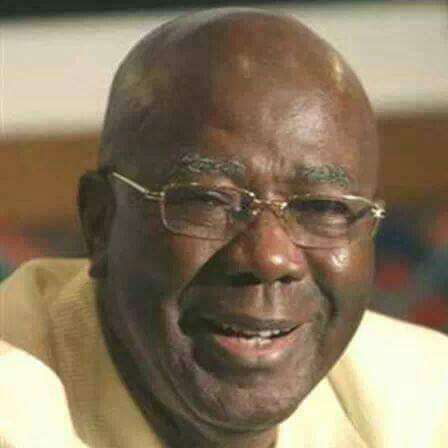
Alhaji Ahmad Tejan Kabbah
Alhaji Ahmad Tejan Kabbah (February 16, 1932 – March 13, 2014) was the third President of Sierra Leone, serving from 1996 to 1997 and again from 1998 to 2007. An economist and attorney by profession, Kabbah spent many years working for the United Nations Development Programme. He retired from the United Nations and returned to Sierra Leone in 1992. In early 1996, Kabbah was elected leader of the Sierra Leone People's Party (SLPP) and was the party's presidential candidate in the 1996 presidential election. He was elected President of Sierra Leone in the 1996 election with 59% of the vote, defeating his closest rival, John Karefa-Smart of the United National People's Party (UNPP), who had 40% in the runoff vote and conceded defeat. International observers declared the election free and fair. In his inauguration speech in Freetown, Kabbah promised to end the civil war, which he indeed achieved later in his presidency. A devout Muslim, Kabbah was born in Pendembu, Kailahun District in Eastern Sierra Leone, though he was raised in the capital Freetown. Kabbah was an ethnic Mandingo. Kabbah was Sierra Leone's first and currently the only Muslim head of state of the country. Most of Kabbah's time in office was influenced by the civil war with the Revolutionary United Front, led by Foday Sankoh, which led to him being temporarily ousted by the military Armed Forces Revolutionary Council from May 1997 to March 1998. He was soon returned to power after military intervention by the Economic Community of West African States (ECOWAS), led by Nigeria. Another phase of the civil war led to United Nations and British involvement in the country in 2000. As President, Kabbah opened direct negotiations with the RUF rebels in order to end the civil war. He signed several peace accords with the rebel leader Foday Sankoh, including the 1999 Lomé Peace Accord, in which the rebels, for the first time, agreed to a temporary cease fire with the Sierra Leone government. When the cease fire agreement with the rebels collapsed, Kabbah campaigned for international assistance from the British, the United Nations Security Council, the African Union and the Economic Community of West African States to help defeat the rebels and restore peace and order in Sierra Leone. Kabbah declared the civil war officially over in early 2002. Tens of thousands of Sierra Leoneans across the country took to the streets to celebrate the end of the war. Kabbah went on to easily win his final five-year term in office in the presidential election later that year with 70.1% of the vote, defeating his main opponent Ernest Bai Koroma of the main opposition All People's Congress (APC). International observers declared the election free and fair.Alhaji Ahmad Tejan Kabbah was born on February 16, 1932 in the rural town of Pendembu, Kailahun District in the Eastern Province of Sierra Leone. Kabbah's father was an ethnic Mandingo from Kambia District in the north of Sierra Leone and a deeply religious Muslim of Guinean descent . Kabbah's mother Haja Adama Coomber Kabbah was also a deeply religious Muslim and a member of the Mende ethnic group from the Coomber family, a Chieftaincy ruling house based in the rural town of Mobai, Kailahun District in Eastern Sierra Leone. A devoted Muslim himself, Kabbah's first name Ahmad means "highly praised" or "one who constantly thanks God" in the Arabic language. Kabbah was a fluent speaker of several languages including English, French, Susu, Mende, Krio and his native Mandinka language. Though born in the Kailahun District, Kabbah grew up in the capital Freetown. Though a devoted Muslim, Kabbah received his secondary education at the St. Edward's secondary school in Freetown, the oldest catholic secondary school in Sierra Leone. He also married a Catholic, the late Patricia Kabbah, who was an ethnic Sherbro from Bonthe District in Southern Sierra Leone. Together the couple had five children. Kabbah received his higher education at the Cardiff College of Food Technology and Commerce and University College Aberystwyth, Wales, in the United Kingdom, gaining a Bachelor's degree in Economics in 1959. He later studied law, and in 1969 he became a practicing Barrister-at-Law and a member of the Honourable Society of Gray's Inn, London.Kabbah spent nearly his entire career in the public sector. He served in the Western Area and in all the Provinces of Sierra Leone. He was a District Commissioner in Bombali and Kambia (Northern Province), in Kono (Eastern Province) and in Moyamba and Bo (Southern Province). He later became Permanent Secretary in various Ministries, including Trade and Industry, Social Welfare, and Education.Kabbah died at his home in Juba Hill, a middle class neighborhood in the west end of Freetown at the age of 82 on March 13, 2014, after a short illness. Following the announcement of Kabbah's death, Sierra Leone's President Ernest Bai Koroma declared a week of national mourning; and he ordered the country's flags to be flown at half mast throughout Sierra Leone. A state funeral was held for Kabbah. The funeral service was attended by several former heads of state, international delegations, former and current government officials, regardless of their political parties, and members of the civil services. On March 21, 2014, Kabbah's coffin was carried by soldiers of the Sierra Leone Armed Forces into the Sierra Leone House of Parliament where members of parliament paid their last respects to the former head of state. On March 23, 2014 Kabbah's coffin was brought to the National Stadium, as thousands of Sierra Leoneans lined the streets of Freetown to say goodbye to their former leader. Kabbah's body was then carried by soldiers to the Mandingo Central Mosque in Freetown where an Islamic prayer service was held before he was laid to rest at the Kissi Road Cemetery, next to his mother Hajah Adama Kabbah's grave."State funeral for president Kabba on Sunday 23 March". Sierra Leone Telegraph. Sierra Leone Telegraph. March 18, 2014. Archived from the original on April 3, 2015.

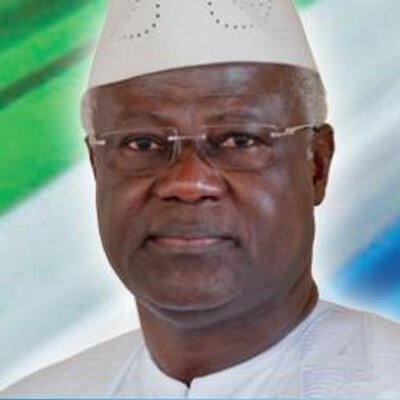
Ernest Bai Koroma
Ernest Bai Koroma (born 2 October 1953) is a Sierra Leonean politician who has been President of Sierra Leone since 2007. Born and raised in Makeni in northern Sierra Leone, Koroma spent more than 24 years working in the private insurance industry before entering politics in 2002. From 1988 to 2002, he was the managing director of the Reliance Insurance Trust Corporation (Ritcorp). He is a 1976 graduate from Fourah Bay College, the oldest university in West Africa. He was elected as leader of the All People's Congress (APC), Sierra Leone's main opposition party, on 24 March 2002, after defeating then incumbent APC leader Edward Turay. Koroma stood as the APC candidate in the 2002 presidential election but was defeated by incumbent President Ahmad Tejan Kabbah, who won 70.3% of the vote, to Koroma's 22.35%.Koroma conceded defeat. Koroma was later elected to Parliament, representing his home District of Bombali from 2002 to 2007. In 2005, he was elected the minority leader of Parliament and remained in that position until his election to the Presidency in 2007. In the 2007 presidential election run-off, Koroma received 54.6% of the vote and defeated incumbent Vice-President Solomon Berewa of the ruling SLPp. Berewa conceded defeat, and Koroma was sworn in as President on 17 September 2007, at the State House in the capital Freetown. International and local observers declared the election free and fair.Koroma succeeded President Ahmad Tejan Kabbah, who was constitutionally ineligible to run for the presidency again after serving the maximum two five-year term limit. In the November 2012 presidential election, Koroma was re-elected as President for a second term, receiving 58.7%, against his main opponent, SLPP candidate Julius Maada Bio, who received 37.4%.International observers deemed the election to be free and fair.Ernest Bai Koroma was born on 2 October 1953, in Makeni,Bombali District in the Northern Province of Sierra Leone. Koroma was born of Christian parentage in the predominantly Muslim north and is a devout Christian himself. Koroma is a longtime member of the Wesleyan Church of Sierra Leone. He was raised in a predominantly Temne household. He is a fluent speaker of the Temne language. His father, Sylvanus Koroma, who was of Temne and Loko heritage, and was a native of Makari Gbanti chiefdom, Bombali District, spent years working as a bible school teacher at the Wesleyan Church in Makeni. Koroma's mother, Alice Koroma (27 June 1932 – 6 July 2012), was an ethnic Biriwa Limba from the small rural town of Kamabai, Bombali District. She served as a councilor in the Makeni city council in the 1960s as a member of the All People's Congress (APC). Alice Koroma was a prominent member of the APC, and the women's leader of the APC Bombali District branch. She was also a strong supporter of then Sierra Leone's president Siaka Stevens' APC government. She later spent almost her entire career working as a primary school teacher in Makeni. Koroma attended the Sierra Leone Church Primary School in Makeni, and then proceeded to the Magburaka Government Secondary School for Boys in Magburaka, Tonkolili District (about 25 miles from his hometown of Makeni), where he graduated in 1973.He then moved to the capital Freetown to attend Fourah Bay College, from where he graduated in 1976 with a degree in Business Management. Soon after graduating from Fourah Bay College, he was employed as a teacher at St. Francis Secondary School in Makeni (1976–78).The Koroma presidency has focused upon rebuilding the country's national infrastructure after the Civil War, fighting corruption, improving the country's health care system. In April 2010, Koroma signed into law the country's free health care program for pregnant women, nursing mothers and children under the age of five.Koroma has focused on free-market solutions, attracting more private investment. On 4 September 2008, Koroma declared his assets to the Sierra Leone Anti-corruption Commission and signed into law the country's new Anti-Corruption Bill of 2008 at the State House in Freetown.Under the new law, it is compulsory for the president and other government officials to declare their assets and update them annually. Koroma has given the country's anti-corruption commission more powers to investigate and prosecute corrupt officials.Since coming to power in 2007, Koroma has dismissed several government ministers associated with corruption, including two of his ministers indicted on corruption charges by the Sierra Leone anti-corruption commission.
